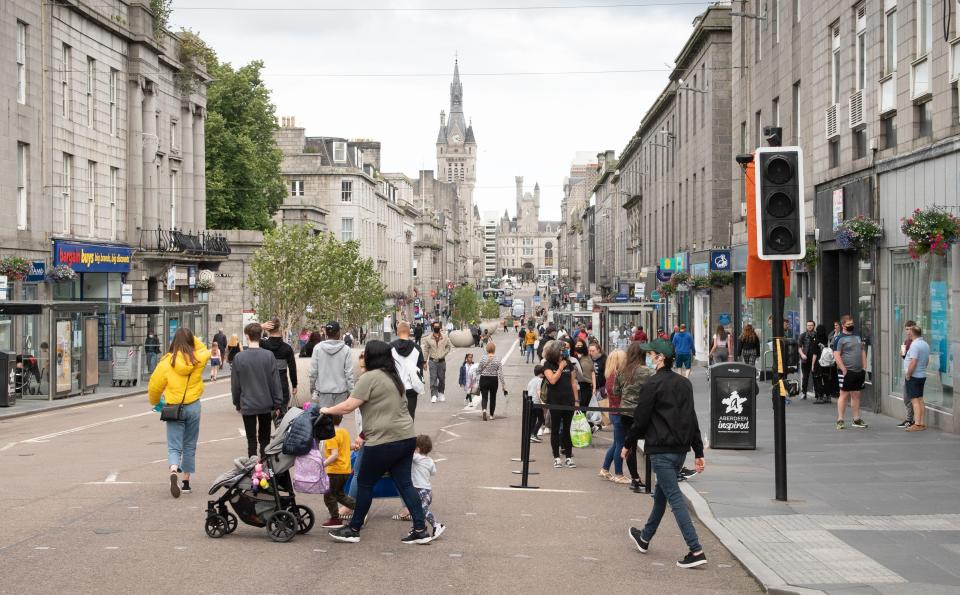Remote working blamed for city centre vacancy slump

Job vacancies remain lower than before the pandemic hit in dozens of UK towns and cities, new figures suggest.
A pronounced slump in vacancies among town and city centre firms has been blamed on high numbers of former customers working from home, on top of government restrictions.
The government U-turned on its back-to-work messaging over the summer, again encouraging remote working where possible in a bid to curb the resurgent coronavirus across the UK. Some of the shift is widely expected to outlive the pandemic, with employers reporting they have coped surprisingly well with remote working en masse.
But new research by the Centre for Cities think tank and jobs site Indeed lays bare the ongoing toll on the labour market from the pandemic and such shifts in behaviour, with far fewer opportunities for urban jobseekers as unemployment continues to rise.
READ MORE: UK economy loses steam as coronavirus curbs hobble recovery
“The stuttering jobs recovery is closely linked to the collapse in local service jobs. These are roles that involve selling directly to local consumers, including sectors like food, retail, arts and leisure, which are exposed to Covid-related restrictions,” said the Centre for Cities in a press release.
“The rise in people working from home has dried up demand for local services in big cities, with London, Manchester and Edinburgh - cities where remote work has been most feasible during the pandemic - among the places with the slowest recovery in job postings in local services businesses compared with last year.”
Services firms in London, Manchester, and Edinburgh have seen some of the weakest recoveries in vacancy numbers since the first nationwide lockdown ended earlier this year.
Aberdeen, which has been hit by high COVID-19 cases and severe local lockdown restrictions this year, saw the steepest fall in jobs. Postings were down 75% year-on-year, with the local oil and gas industry also hit by lower global demand.
READ MORE: Andy Burnham ‘open-mouthed’ job scheme only extended as London lockdown tightened
Vacancies were down 57% in Edinburgh and 52% in London, the sixth highest of the 63 towns and cities analysed.
The analysis found around one in 10 job postings on Indeed in London and other large cities included the phrase “remote work.”
Meanwhile areas where high street footfall has seen greater recovery, such as Chatham in south-east England, also saw vacancies pick up more strongly.
WATCH: What is the job support scheme and how has it changed?
“The timid recovery in job vacancies is a portent of the distress towns and cities could face if restrictions continue to spring up in parts of the country already reeling from imposed lockdowns and reduced footfall,” said Pawel Adrjan, EMEA head of research at the global job site Indeed.
“With the remote work trend showing no sign of abating - and entire regions being placed under stricter control - service jobs in large towns and cities could become scarcer still and pull the UK into a jobs spiral. That could mean a very long winter ahead for the millions of people currently unemployed.”
Andrew Carter, Centre for Cities’ chief executive, said it could be “potentially catastrophic” that vacancies were down year-on-year in every large city and town just as joblessness continued to edge higher.
He called for the government to “continue to listen and reassess” support levels for areas hit by local restrictions, and to boost job creation in areas already struggling with a lack of jobs before the crisis.

